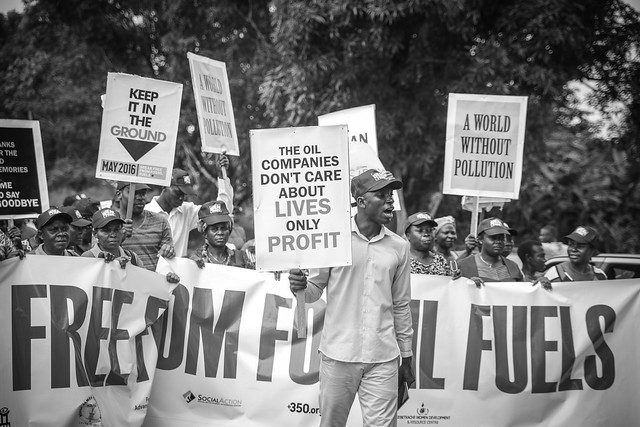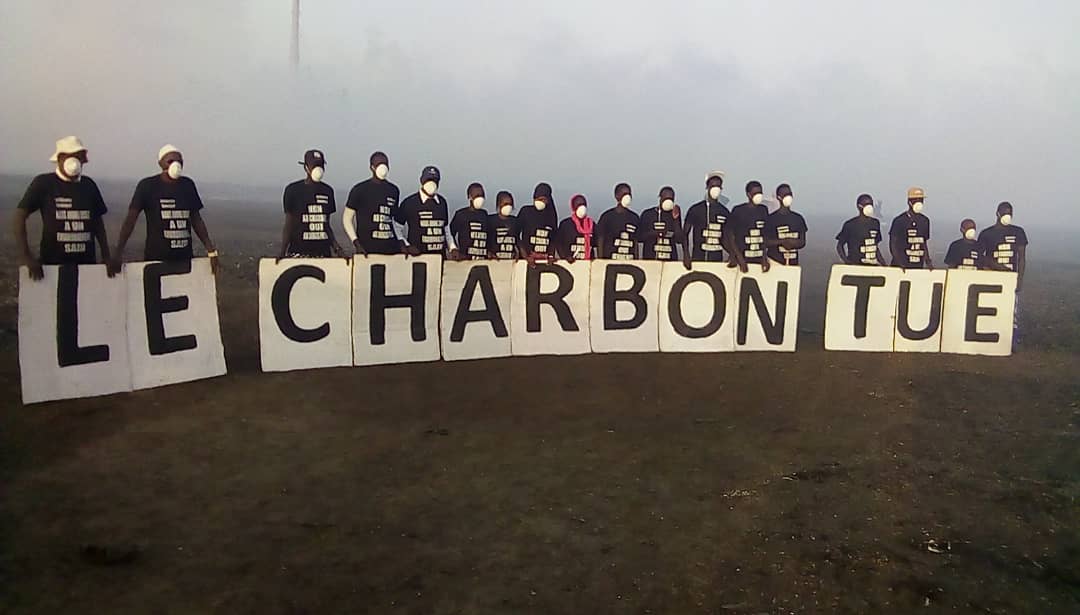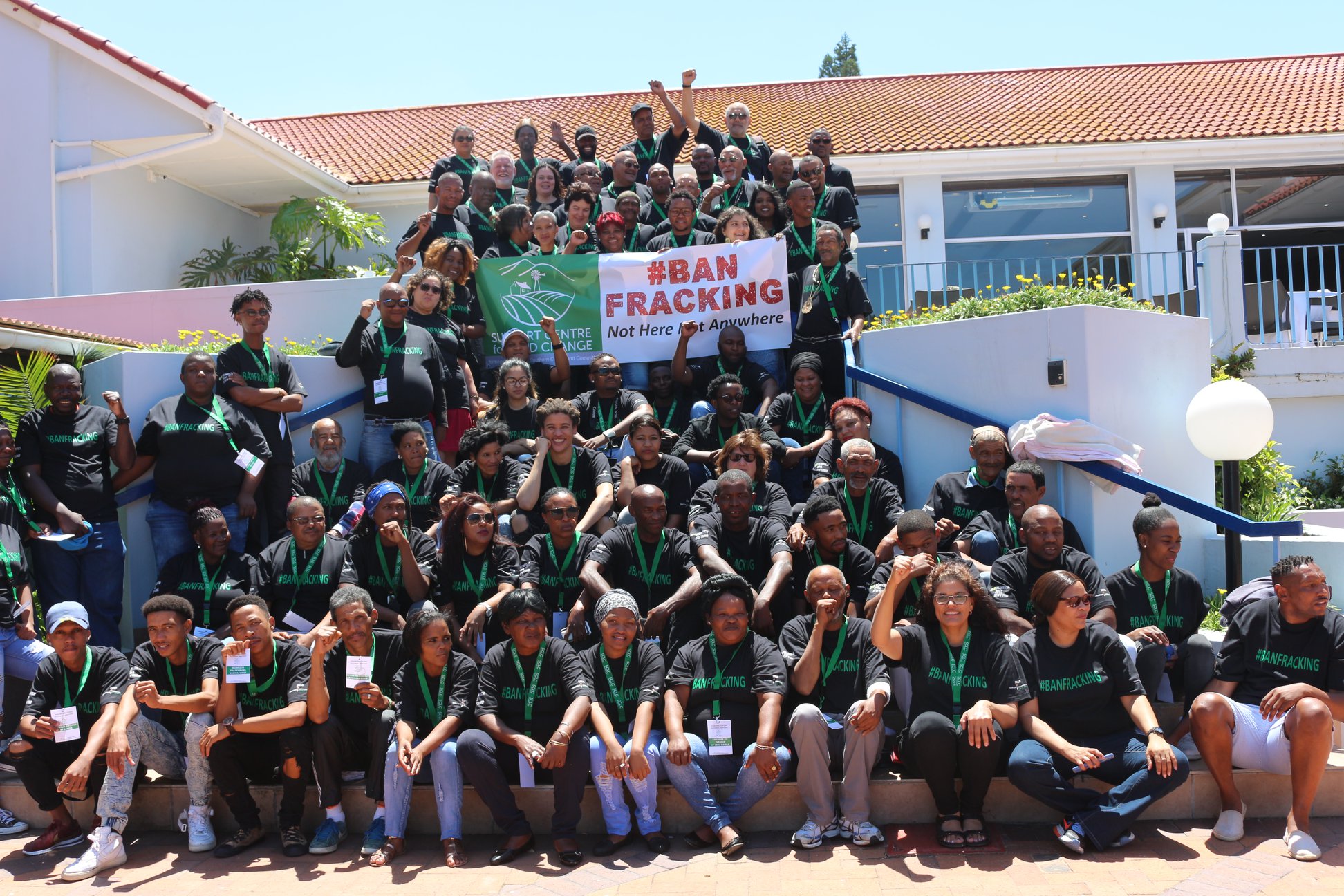#AfrikaVuka Uprising: 48hours of incredible hope and determination
#AfrikaVuka, a call for climate justice and the end of fossil fuel use in Africa. Last week, we saw continent-wide events and protests demanding action on the climate crisis. While several events were cancelled due to their ‘political’ nature in Uganda, Kenya and Senegal, these obstructions by authorities in both countries paled in comparison to how communities from Nairobi, to Cairo, Kinshasa to Cape Town showed leaders the way to fight climate change:
The resounding message of climate change and the sound of awakening to address it were heard in Kano, Nigeria. @350Africa @surgeafricaorg #afrikavuka #AfricaDay2019 pic.twitter.com/EXZv4NKGvz
— 350nigeria.org (@350nigeriaO) May 26, 2019
La marche de protestation contre l'exploitation du pétrole dans #Parc #virunga & des soutiens à l'utilisation des #énergies #renouvelables à Kinshasa #AfrikaVuka avec à la participation des organisations des jeunes et celle des jeunes #RDC #Afrikavuka@350Africa @ZER0_missions pic.twitter.com/kE4gj66WBH
— HOPELANDCONGO (@Hlcasbl) May 25, 2019
These #AfrikaVuka actions coincided with Africa Day and Global Youth Strikes for Climate, where school students demanded action to prevent further global heating and climate change. Communities across the continent are fighting for the future, as record storms, droughts and flooding devastated entire regions. Africans can no longer ignore the fact that they have contributed the least to the climate crisis but are already experiencing its worst impacts. We need a sustainable path for our future and the solution is simple, We must stop using fossil fuels.
#AfrikaVuka is a campaigning platform aimed at uniting and supporting citizens, communities, organisations and coalitions working to build a future which is free from the destructive impacts of the climate crisis across Africa. You can be a part of the movement here.
We’re days away from rising up calling on our leaders to fight climate change.
We’ve seen throughout history that movements that promote progressive social change have been driven by ordinary people dedicated to leading when governments have failed. People power leading the way has become even more relevant as the effects of climate change have begun to unravel across Africa, as leaders across the length and breadth of the continent prop up the importation and exploitation of fossil fuels.
As part of Africa Day, on May 24-25 we will see the determination of people, in communities across Africa rise up against new fossil fuel exploration, and developments - showing leaders the way to fight climate change. So far there have been over 50 events registered across the continent calling on their leaders to commit to building a fossil free Africa that puts people and justice before profits.
The movement against new fossil fuel developments is global and extremely pertinent to the future of our planet. Here’s a snippet into what will be happening in Nigeria, Senegal and South Africa on the 25th:
- Nigeria: To mark the Afrika Day of Action, GIFSEP intends to mobilize at least 20 Senior Secondary Schools in Abuja to produce and deliver climate-conscious and justice messages on one parachute and other colourful paintings. This parachute and painting will be delivered through a march towards the parliament building asking the members of parliament to pass the climate bill and lead Nigeria on the road to climate justice.
- Senegal: A huge rally gathering at least 1500 citizens composed of youth, women, traditional chiefs, religious leaders, local authorities, CSOs and NGOs is planned in Bargny to denounce the Bargny coal plant project and to call the Senegalese President to demonstrate a stronger leadership role in fighting against climate change and promote renewables.
- South Africa: Communities affected by mining, and those in support of these communities, will be marching to the Union Buildings in Pretoria. A memorandum calling for a national ban on fracking in South Africa will be handed over to the President and to the Minister of the Department of Mineral Resources.
Our collective futures depends on us being able to seize this moment and work together to pushback against the fossil fuel industry fuelling the climate crisis and for long-lasting and meaningful change.
“Stop Procrastinating and lip-service, Take Immediate Action” Activists in Ghana tell African Leaders
On the 21st of March, 350 Ghana Reducing Our Carbon took to the streets together with Ghana Youth Environmental Movement, Green Africa Youth Movement and other climate justice organisations like PACJA, Peasant Farmers Association of Ghana, Friends of the Earth Nigeria to demand real climate action.
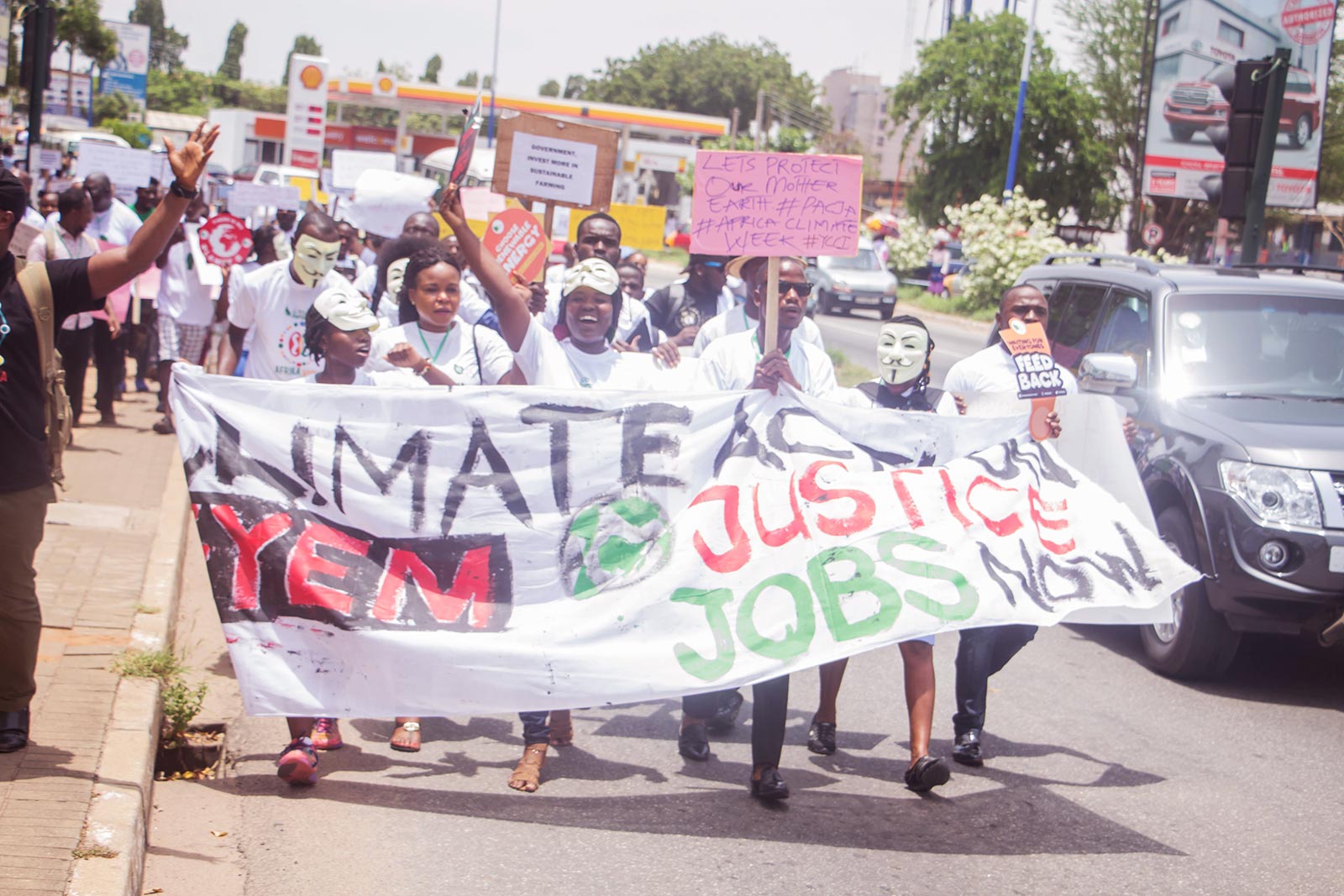
The action was amongst a series of activities by the 350 GROC team in response to the proceedings of the Africa Climate Week hosted by the government of Ghana from 18 - 22 March. The summit’s aim was to enhance engagement between State and non‐State actors in the key sectors of energy, agriculture and human settlements.
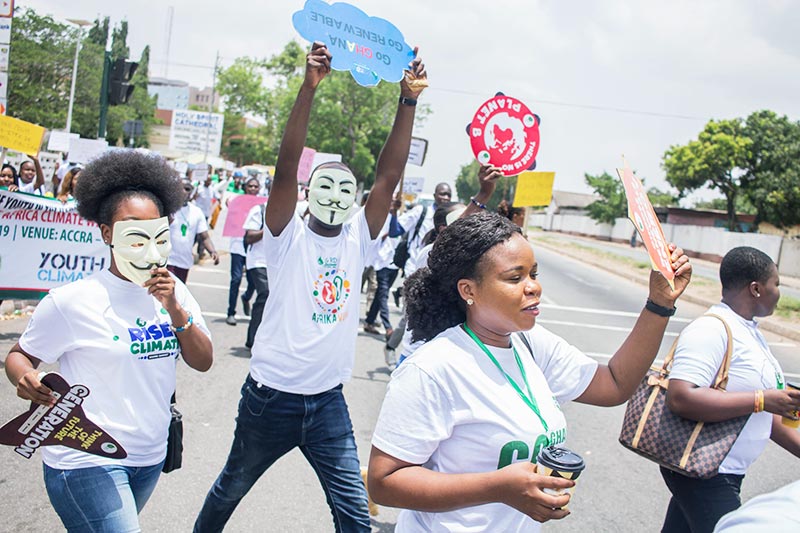
The activists in Accra clearly expressed their opposition to fossil fuels and carbon markets, saying that such false solutions have no place in the new dawn of Ghana, and Africa if we have to combat climate change and achieve the goals of sustainable development.
Before that action, a press conference was held where 350 GROC and its partners asked their government to stop the lip-service and accelerate the energy transition towards 100% renewables.
Although there were no solid commitments from the Africa Climate Week, 350 GROC committed to continuing to push the Ghanaian government to be ambitious and not delay the transition for a 100% renewable energy future.
- Rukiya Khamis
Organising for a new wave of people-powered campaigns in Africa
In February, the 350 Africa team brought together organisers and activists from across the continent for a 5-day workshop as part of the new regional campaigning platform - Afrika Vuka (coming soon!).
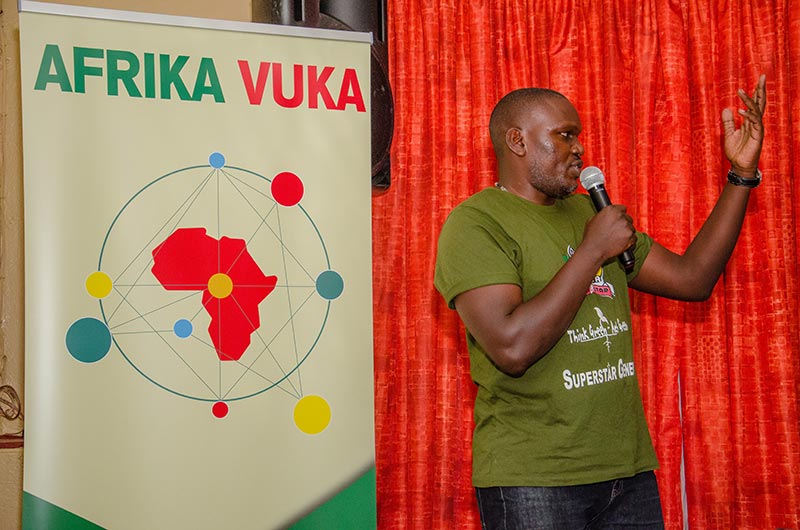
The main goal of this gathering was to strengthen the campaigning and organizing capacity of local organisers to run successful and impactful campaigns in their respective countries. On a continent where politicians and the extractive industry continue to spread ridiculous lies about the so-called benefits of fossil fuels, there’s a need to constantly re-strategize and ensure that our organisers are well trained and equipped to successfully challenge such devastating projects.
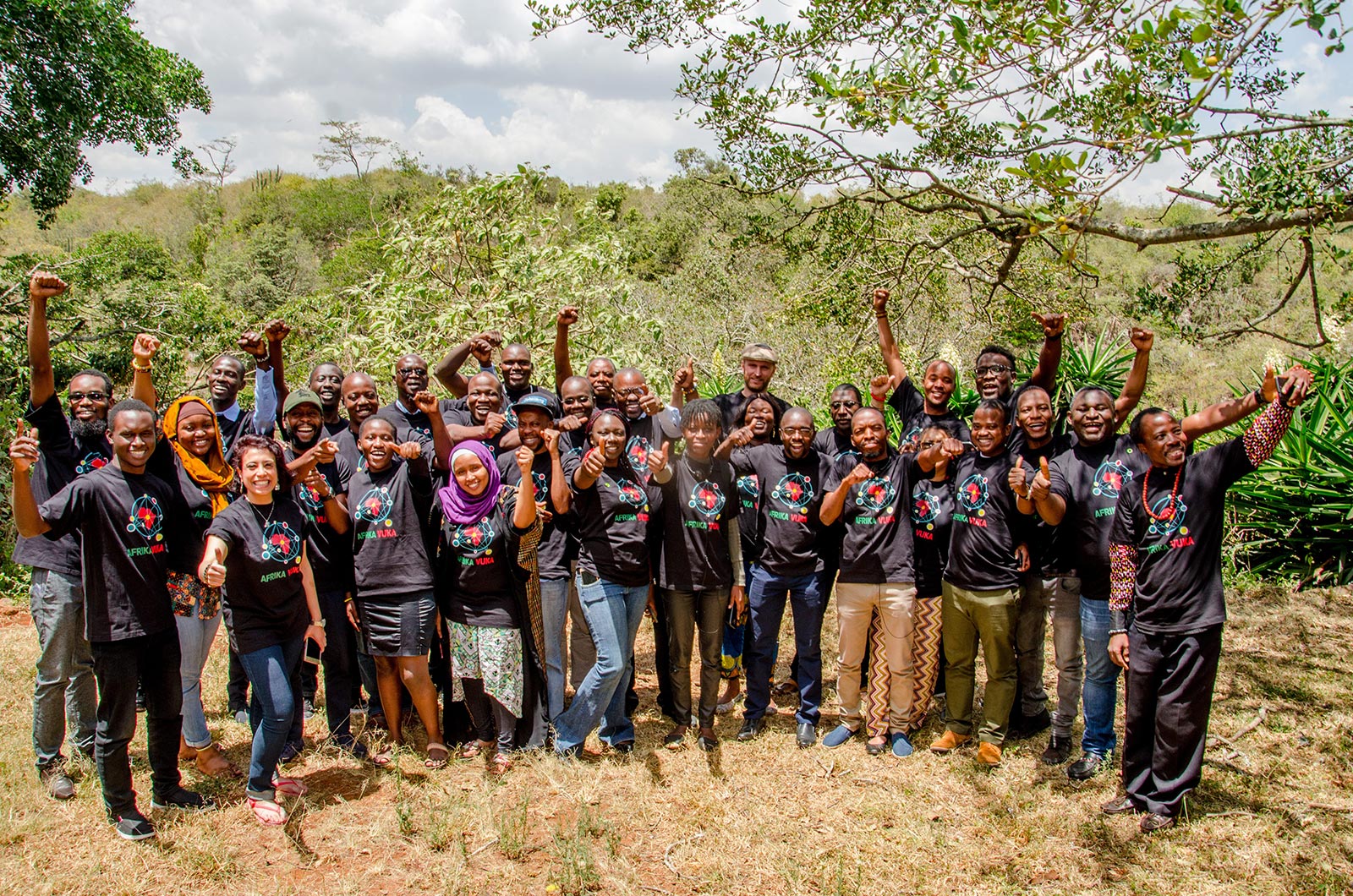
25 participants joined us. The following countries were represented: DRC, Egypt, Ghana, Ivory Coast, Kenya, Nigeria, Sierra Leone, Senegal, South Africa, Tanzania, Uganda and Zimbabwe. All of them are directly involved in ongoing campaigns and initiatives aiming at challenging coal mining, oil exploitation, extractive projects or championing alternative energy solutions.
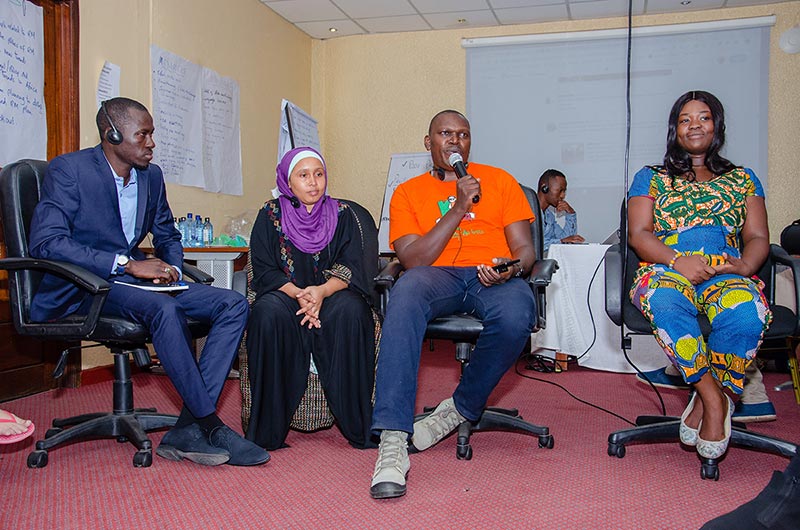
During the first four days of the workshop, we presented Afrika Vuka, an upcoming campaigning platform connecting citizens, struggles and groups around the continent working to building a future that’s free from the destructive impacts of the fossil fuel industry. Five case studies from Kenya, Senegal, Ivory Coast, South Africa and Africa Climate Reality Project were shared to give an in-depth understanding of such campaigns in terms of recent developments, successes, challenges, next steps and how regional support and global amplification can boost such struggles.
Though the programme was rather packed, we managed to create open sessions to discuss some of the emerging themes, notably learnings from our past organising experiences and safety in organising, where we identified some of the common threats and risks experienced on the ground by participants.
Practical sessions on digital organising, storytelling, shifting the media narrative, building last relationships with reporters, planning and organising a successful day of action, research-based campaigning, engagement pyramid.
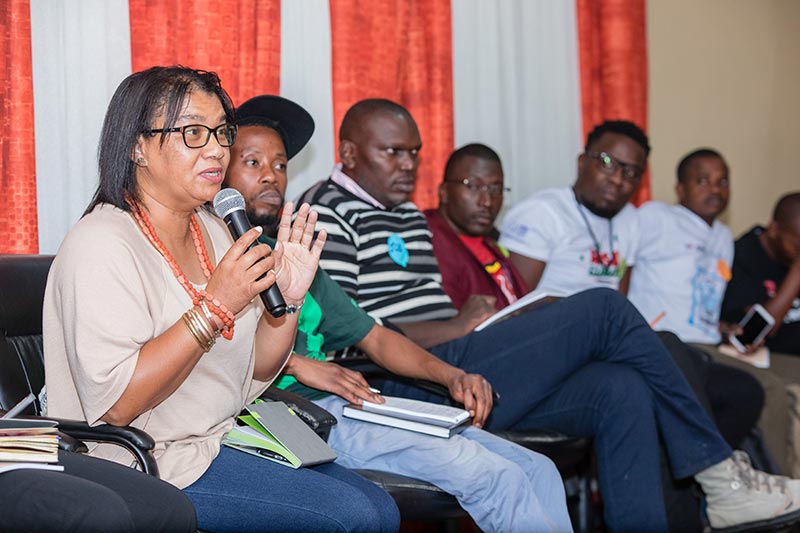
“Brainstorming, storytelling and interactive workshops were my favourite part to share experience and knowledge,” says Asmaa Hanafi, one of the participants from Egypt. “It was interesting to let each group present their success story to divest fossil fuels.”
We look forward to the upcoming moments as we continue to grow and consolidate the regional climate movement through #AfrikaVuka platform.
Sign up here for updates to hear when the new Afrika Vuka platform launches!
Break Free 2018: These events caught our imagination.
-
In Kenya - Folks will be rolling out coordinated actions - Photo exhibitions, debates, twitter chats, and an “AntiCoal Khanga show“ in Lamu challenging women to use a traditional attire (Khanga: a vibrantly coloured East African cloth worn by women) to tell the African story of fossil fuel impacts.
-
In Nigeria - People will be joining forces to talk about the easy switch from generators and kerosene for lighting to solar in a caravan around a college. A press conference with people from mining-affected communities, a renewable energy presentation and non-violent direct action training will also be held.
-
In Ivory coast - Film screenings and community debate to denounce a coal plant project in San-Pedro, alongside a Twitter chat addressed to the AfDB - who are funding coal projects across Africa to reiterate that Ivory Coast doesn’t need coal, but rather renewables to satisfy its energy demand and accelerate its development.
-
In South Africa, events range from rallies to workshops on climate change and the case for breaking free from fossil fuels, to people calling on the Development Bank of Southern Africa to publicly commit to not funding the Thabametsi coal-fired power plant.
-
In Senegal - Civil society and climate justice groups, local communities, students and women groups are attending a large community forum in Bargny to oppose the launch of the first coal power plant in Senegal and call on the government to stop this project.
-
In Ghana - 350 GROC is reaching out to communities in the Eastern region of Ghana (Dome, Asayansu, Kwesi Kunde, Fori) to mobilise on renewable energy This event is part of the ongoing campaign led by GROC to advocate for a rapid transition towards 100% renewables as a way of increasing electricity access to communities.
Why we’re Breaking Free from fossil fuels on the 25th of May
We’re gearing up in South Africa and together with groups from all over the continent to #BreakFree from fossil fuels on the 25th of May - Africa Day. With groups hosting events in many different countries, we hope it will be a day where we demonstrate that African people do not want fossil fuels.
This is why we think this work is so important:
- Fossil fuels are killing us. Burning of coal for electricity causes terrible air pollution which has been shown to be responsible for illness and deaths among those affected.

- Climate change is impacting our continent hardest, displacing people and destroying livelihoods.
 Image © AlJazeera
Image © AlJazeera - We believe a more equitable energy future is possible. Renewable energy has the potential to put the power of generation in many people's hands, not only a few.

- We need a united voice. There are many African people and groups working to end the age of fossil fuels in Africa, if we all come together at the same time though, our voices are more powerful. deCOALonise.africa was started in order to do this.

What are your reasons for getting involved? We’d love to hear them.
You can help us by joining an event near you, or hosting your own event. Can you believe that our very own African Development Bank is financing coal-fired power plants all over Africa? Join us in showing them that we want to deCOALonise our continent!
#ThumaMina – call on the DBSA to publicly commit to not financing new coal
We all know we don't need another coal plant. Besides the immediate impact on the health of people living close to the plant, emissions from coal-fired power plants contribute to climate change. Burning more coal will only lead to more catastrophic climate change, more extreme weather and even more impacts like the drought in the Cape and dangerous storms. Coal is killing us and our planet and it's time we took action to stop it.
South Africa is at the shore of a national water crisis. Corruption within the coal sector threatens the country’s democracy and has been entrenched into the highest levels of governance. Reports on how load shedding was used as a money-making scheme, irregularities within the Water and Sanitation Department and ensuing economic misfortune has reached extreme levels and has South Africans feeling despondent in the midst of a water crisis. In order to avoid the situation becoming any worse, public and private financial institutions need to be persuaded to break ties with the coal sector, which threatens our collective well being.
This is why 350Africa has launched the Thuma Mina(lend a hand) DBSA campaign calling on the DBSA to permanently withdraw from financing Thabametsi. The plant will use outdated technology and as a result will be a coal plant with disproportionate emissions, impacts on human health, water availability, and agricultural productivity in an age when any new coal plant cannot compete economically with renewable energy and is a climate crime. Set to begin operating in 2021 with a lifespan of 45 years, the plant would mean that either South Africa will not be able to meet its climate change obligations, or that the power plant will close early, becoming a stranded asset.
The Life After Coal campaign has made incredible progress towards stopping Thabametsi. We now call on the DBSA to continue their work supporting renewable energy and commit to not funding this new coal power plant. Their slogan is #MakeChangeHappen, let’s do it sustainably.
You can join the call by visiting the campaign website and signing the petition asking the DBSA to commit to not funding coal.


